“The most experimental songs ever are about to be released”
Zeb Bangash, known for her euphonious and melodious voice has been a regular at the treasured Coke Studio and given us songs that hold a special place in many hearts across the world. Since the beginning of her career, she’s brought great pride to the country as a fitting representative of Pakistani music and talent. Her soulful voice has been celebrated through the many accolades and awards she’s earned. Everyone is familiar with Zeb’s hypnotic vocals that drip with emotion, creating a sense of purity and calmness, but Durrah Aman sat down with her for a chance to delve deeper into her life; to really get to know the woman behind this iconic singer.




As we began our chat, I insisted we start from the beginning and Zeb fondly took a walk down memory lane. “I had a very normal childhood. My father was in the forces and my mother ran a very tight ship. They’re both loving and communicative, but we led very disciplined lives. During summer vacations, we would visit our ancestral villages, in either Kohat or Abbotabbad. I’ve stayed in small towns and big cities so I’ve experienced both lives from an early age.” Talking about life as a student, she shared, “There are so many memories. I changed schools a lot as we had to move around. By the time I was in A’Levels, I had changed sixteen schools all over Pakistan. In the beginning of high school I was doing well academically and was winning awards, however, by the end I did feel a bit lost. That was the first time I experienced failure in my life. I faced months of distress and insecurity. Thankfully though, my college years were better as the environment was nurturing and academically rigorous. At college, I reestablished my rhythm and rediscovered myself.” While moving all over the country in your formative years can come with its challenges, it also opens up many opportunities to learn and grow, which is something Zeb values. “It shapes every aspect of one’s life and you absorb those experiences in a way that they become part of you. One of the major plus points is that I don’t feel out of place anywhere and I can be in any kind of environment and feel at home.”
A quality that perhaps most successful artists share is their curious nature and Zeb is no different. She’s always been a dreamer. Her passion is what drives her to do well, while her childlike nature anchors her. “These are parts of my personality that I hold dear.”
Shifting gears, Zeb talked about married life. “It’s a journey and it keeps changing. Falling in love is always great. I’m a romantic by nature and I share a romance with my music as well.”
Moving on to music, I find out she inherited her love for it from her maternal grandmother, who was a singer and poetess. In fact, Zeb added that everyone in her family is musically inclined. “My musical inspiration very early on was Lata Mangeshkar as my grandmother used to sing me her lullaby. That was the first song I heard. In my early teens, I was into a lot of Turkish music, along with Hollywood and Bollywood.” Zeb has sung in sixteen languages and amazingly, each one came very naturally to her.
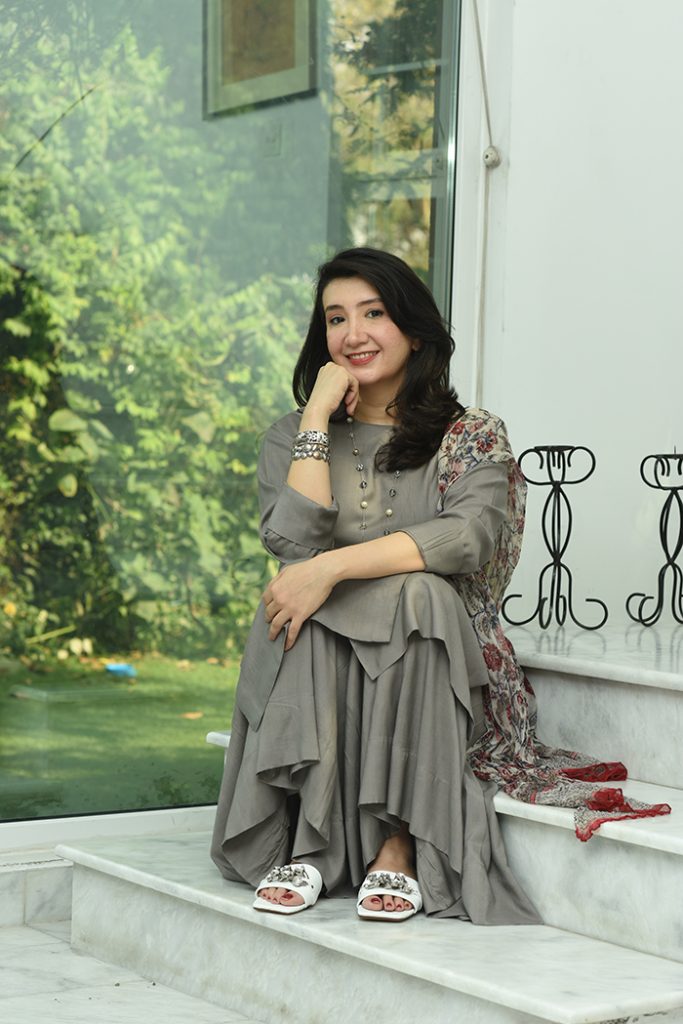
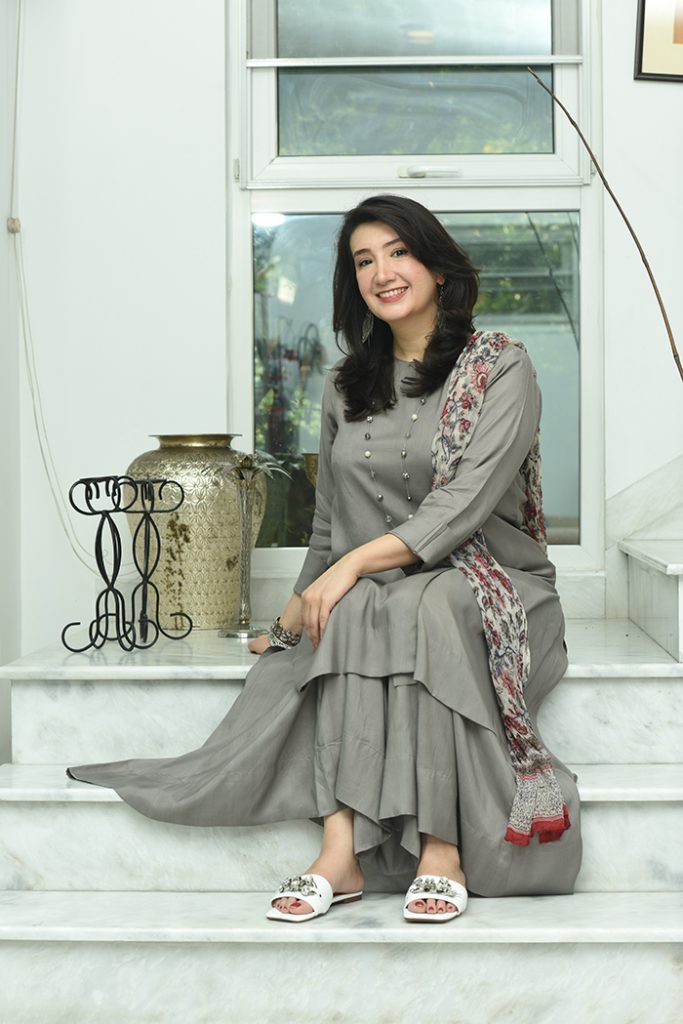



She shared the story behind one of her most popular songs “Roshe” that she sung in Kashmiri. “Roshe has a very interesting story. There’s a lot I learnt from it personally. I grew up in Lahore which is filled with Kashmiris; as South Asians too, Kashmir is always in our minds. Despite that, I never knew that Kashmir had its own language. I remember preforming at a festival at the Purana Qila in Delhi and at the end, these young boys came up to me and thanked me for singing their music. When I asked where they were from, they said Kashmir. I was confused. I asked them to explain how I was singing their music. They told me I was using their instruments. They were the ones who first suggested that I should sing in the Kashmiri language- also the first ones who made me aware that Kashmiri is a separate language. When I started listening to Kashmiri songs, I realized how beautiful the poetry is. The language is extremely special. It doesn’t sound like any other language I’ve ever heard. While I continued learning more, I discovered Habba Khatoon, who was the last princess of Kashmir and a celebrated poetesss. Roshe is her song. It was a tribute to her.”
Zeb’s powerful vocals have travelled across the globe. She’s performed live in many countries and believes each audience perceives her music differently. “It’s perceived differently in different places. But I’ve only gotten tons of love. The songs that always do the best abroad are the traditional ones and I realised this very early in my career. In 2010, while performing on stage with Abida Parveen, I witnessed the kind of effect our traditional artists have over the global audience. It’s phenomenal because that control and skill is so rooted. That is where the gold is.”
On this note, I asked her about the band she began her career with, “Zeb and Haniya,” which she established with her first cousin, Haniya Aslam. The duo received massive acclaim, but what was it like when they had to go their separate ways? With a smile, she said that she believes “everything happens for a reason.” Her strong faith in those words and unwavering positivity are what always get her through tough times. “It was very difficult, but it was necessary. The two of us fell into this career and received so much love and fame. It was truly a magical time for both of us. However, we realised that we had different musical perspectives and needed to explore them separately. It was a very hard decision to make and things weren’t easy initially, but we knew it had to be done.”
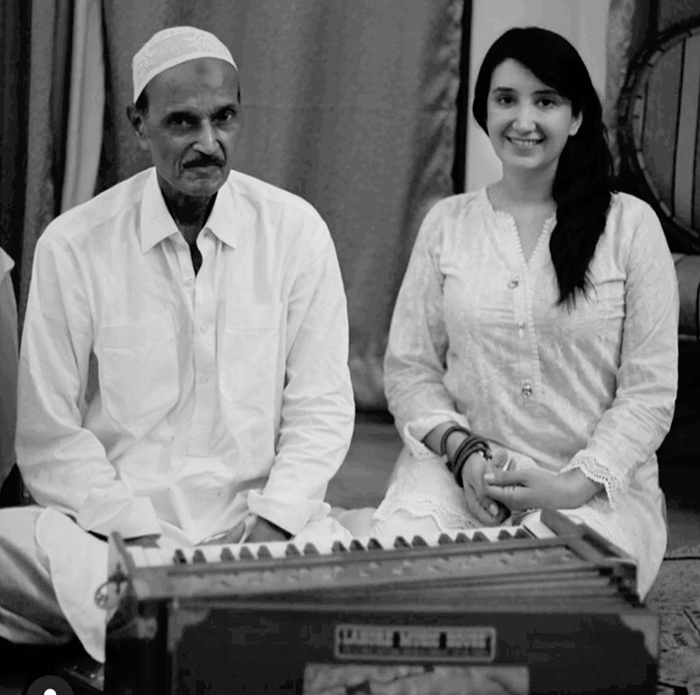
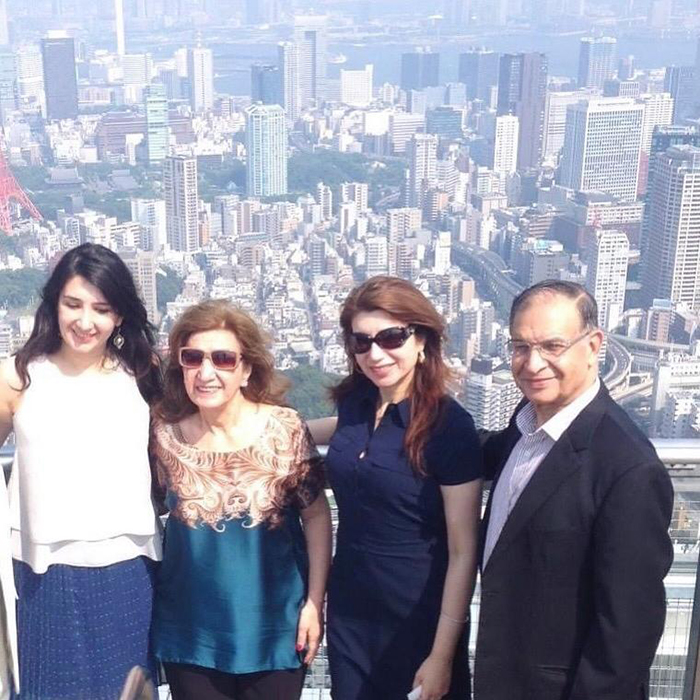
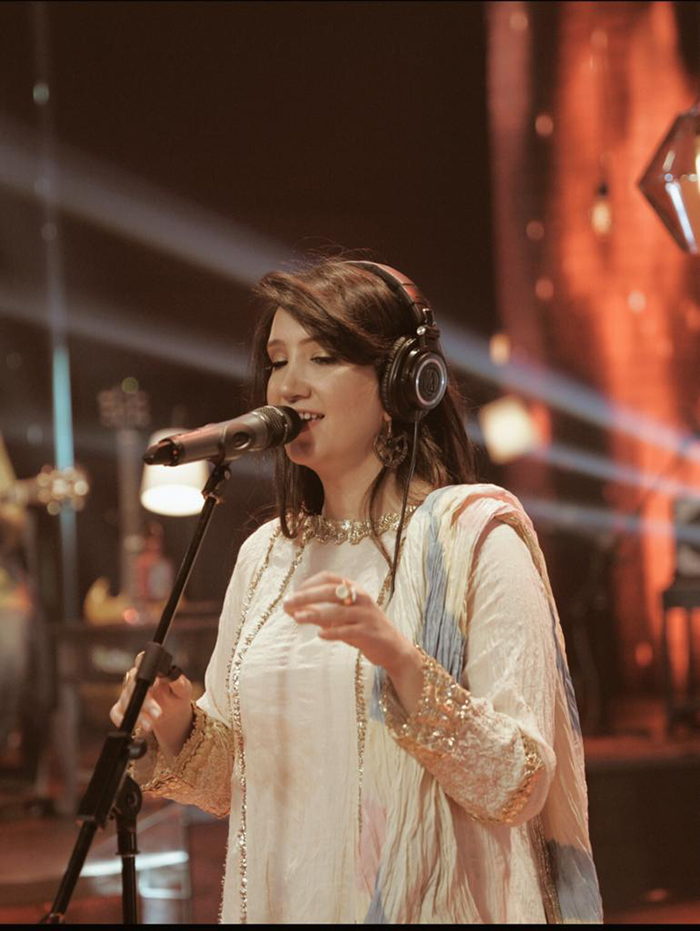
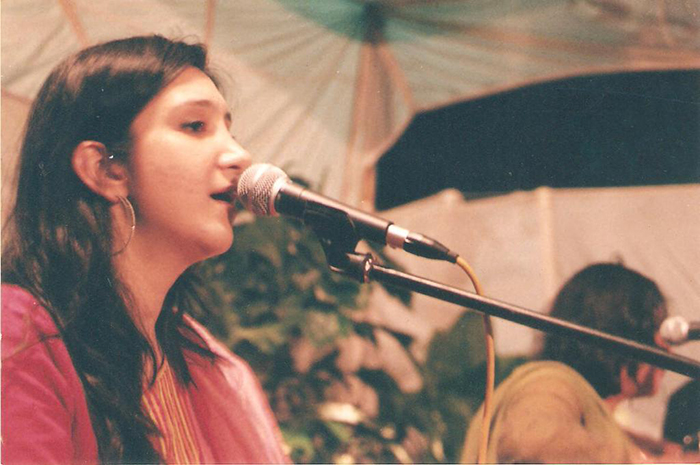


In her solo career, she credits Ustaad Saami for helping her evolve. “My evolution with him and his guidance is not only restricted to music. He has a knack, a gift for knowing what a student requires, not only in their craft, but also in the kind of person they are, their humanity. After I came under his tutelage, I became a calmer person, with stronger faith and more love, directed not just towards myself, but also towards my craft. The biggest gift I’ve received from my Ustaad is that he made me understand and take pride in Islamic culture and tradition. He’s a walking museum; he represents the apex of Muslim/South Asian culture. When you sit with him and you see his intellectual curiosity, his openness of thought and generosity of spirit, it really inspires you and makes you feel good about the tradition and legacy that you are part of.”
Zeb also went on to mention the Brooklyn-based music group, “Sandaraa,” that she’s been a part of. “This year marks our 10th anniversary. It was difficult staying in touch during COVID, but we want to do something now to celebrate our decade together.” She joined the group completely by accident, but enjoys a great working relationship with everyone involved. The idea behind the band was to bring different cultures and heritages on one platform. Members of the band include artists who play clansman music, Turkish music and Pakistani music. One can see that Zeb’s musical journey is comprised of so many traditions coming together and that may just be the secret to her success. Clearly, she’s not one to shy away from experiencing new music styles or experimenting.
The word “experiment” piqued my interest. When asked which song of hers she thinks was the most experimental, she took a moment and shared, “You know my most experimental songs ever are just about to be released. I’ve done an electronic album with an American band and producer and its really fun.”
Amongst Zeb multiple other achievements is her being the only Pakistani female music director to work on a Bollywood movie. While creating music for “Lipstick Under my Burqa,” she loved the friendships she found and shares a bond of sisterhood even today. She’s also been a part of many Bollywood soundtracks – collaborations that proved to be great for her career. “They were huge feathers in my cap, especially at that time. We all love Bollywood songs, so featuring in them was naturally a great feeling. Going to Bombay and meeting people I admired for their work made me learn a lot. Playback singing, especially the way it’s done in India, required a specific skill set, which made me think about how my voice could serve other people’s perspectives.”
Commenting on the many title tracks she’s sung and produced for our own movies, she said each experience has continued to add to her career as she got the opportunity to meet some very inspiring people. She’s worked with the biggest names in the industry, including Asim Raza and Sarmad Khoosat.
When asked to describe the essence of her music in a few words, Zeb said she found that to be “a tough one.” “I think my listeners can describe my music better. For me, the music I create represents all my emotions. I can’t really take the essence out.”
As an artist, it’s natural for one to face challenges and hurdles. Zeb shared some of the roadblocks that came in her way. “The biggest challenge I continue to face is judgment. People always tend to put you in a box. You’re either a traditional singer or a soulful singer. I’ve always found that strange and stifling, as I want to be free to try out different things, but the market always want to give you what it’s already seen of you; it doesn’t let you experiment, so I realised that I needed to do things on my own clock. Another thing I find strange is that the music industry has become increasingly visual. I think that at some level this takes away from listening to the artist solely because you love their voice. The visual aspect to singing is given a lot of importance, sometimes more so than singing itself. I’m old school so I still struggle with that.”
A track of hers that I particularly admire is “Saaf Hawa,” as it goes on to show her commitment towards causes that require immediate action. She proved that artists can use their talent as an effective tool for raising awareness regarding important issues, like climate activism in this case. The song- an ode to clean air- encourages the listener to work towards mitigating harmful effects of air pollution. She reminisced the time everyone used to be excited about winter in Lahore; families and friends would sit outside and enjoy the sun while eating oranges; it was the best time of the year. However, now due to the AQI being deathly, this has been taken away from us. “When this project came to me, I leapt at it. It took around two to three years in the making, but the more I got involved, the more I realised how serious the issue was. You’re taking away the chance of a healthy life from young people and that really bothers me. I’ve become a voice for this cause and it’s very close to my heart. I hope through these efforts we can talk about clean air.”
Zeb Bangash is truly an asset to Pakistan, not because of the music she creates, but also the other endeavours she so ardently takes on. Her love for Sufism prompted her to work on a documentary with the Saami Qawwals, which is being funded by a cultural center in Baltimore. They’re working with Professor Homayra Ziad from Johns Hopkins University, who teaches Sufism. The idea is to introduce young students to the idea of khyal, rooted back to Amir Khusro. She shared that one of the reasons for her trying to promote this concept is because it’s personally helped her heal. For her, this is a passion project, both as a Muslim and as an artist. “As a Muslim and as an artist, it’s important to know about these things. In today’s world, there’s controversy between arts and spirituality, because of which we sometimes forget how much Muslim arts has given to the world.” The aim is for students to get to know their voice and the spiritual effects that take place as a result.
Another cause close to Zeb’s heart is women empowerment. She believes no progress can take place in the world today without equal opportunity for females. According to her, some issues can only be voiced by women, as they’re the ones experiencing them and society has to not only pay heed, but provide a safe space for growth. “Women’s voices should be included in every aspect of life and they have to be given the freedom to express their talent in a more liberating environment. I would like to see a lot of kindness and openness.”
On an ending note to what has been an absolutely delightful conversation, I asked Zeb about what 2023 holds for her.
There was excitement in her expression as she shared that there was a new album in the pipeline, along with some other projects she couldn’t reveal more information regarding as yet.
Zeb Bangash has given Pakistan so much to be proud of, both, in the form of her music and her dedication to other social causes. She makes a conscious effort to play a constructive role in society and use her influence for positive change.
This aspect to her personality is reflective of her values, sense of responsibility towards the country and the fact that she takes nothing for granted. She’s deeply emotional about Pakistan, its people and culture and committed to work towards its betterment. “Tawakul guides me in life. It gives me the assurance to believe in my efforts and attain inner peace.” You can definitely sense that peace when sitting next to her as she exudes positivity and calmness.
We finally say our goodbyes after listening to a medley of a few of her beautiful songs. Some interviews leave you feeling recharged and inspired – this was just that. Zeb Bangash is a force to be reckoned with and I can’t wait to see what she comes up with next.
Photographers: Raza Ali, Syed Abu Turab & Najam Mahmood
Stylist: Mamoon Tariq
Makeup artist: Syed Hussain
Interview by: Durrah Aman
Written by: Minahil Hussain
Coordination: Mindful Team
Video interview: Youtube/mindfulpakistanofficial



